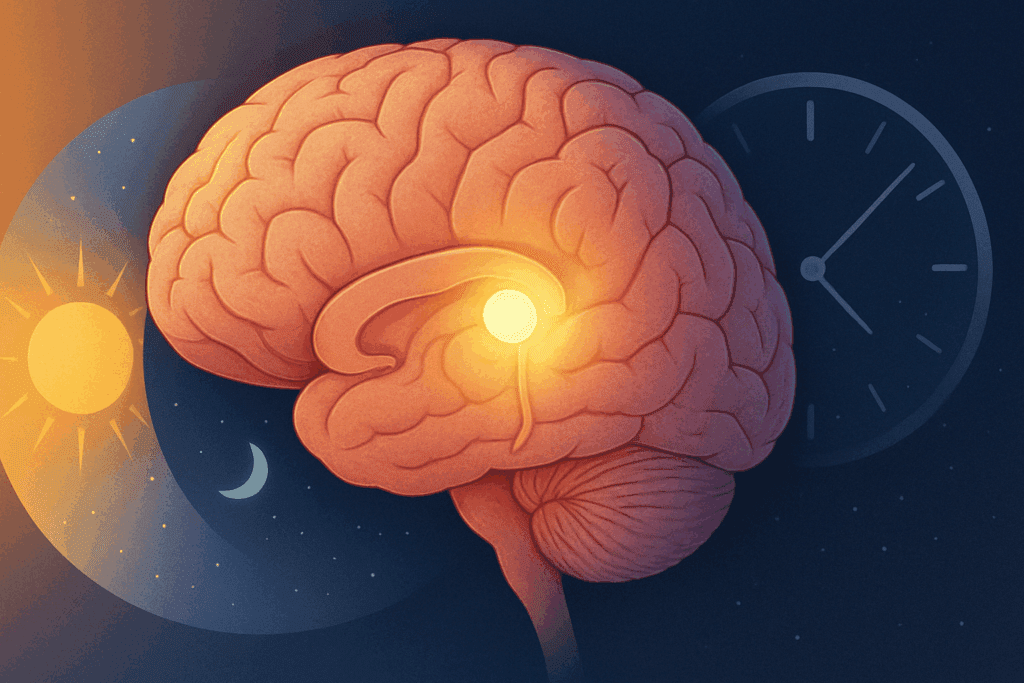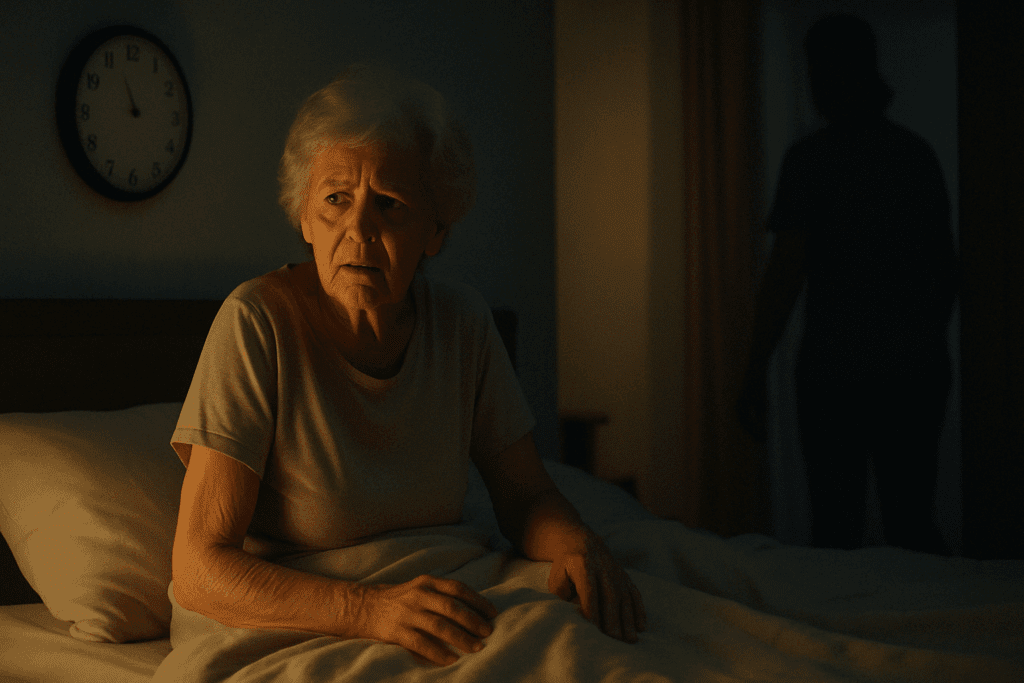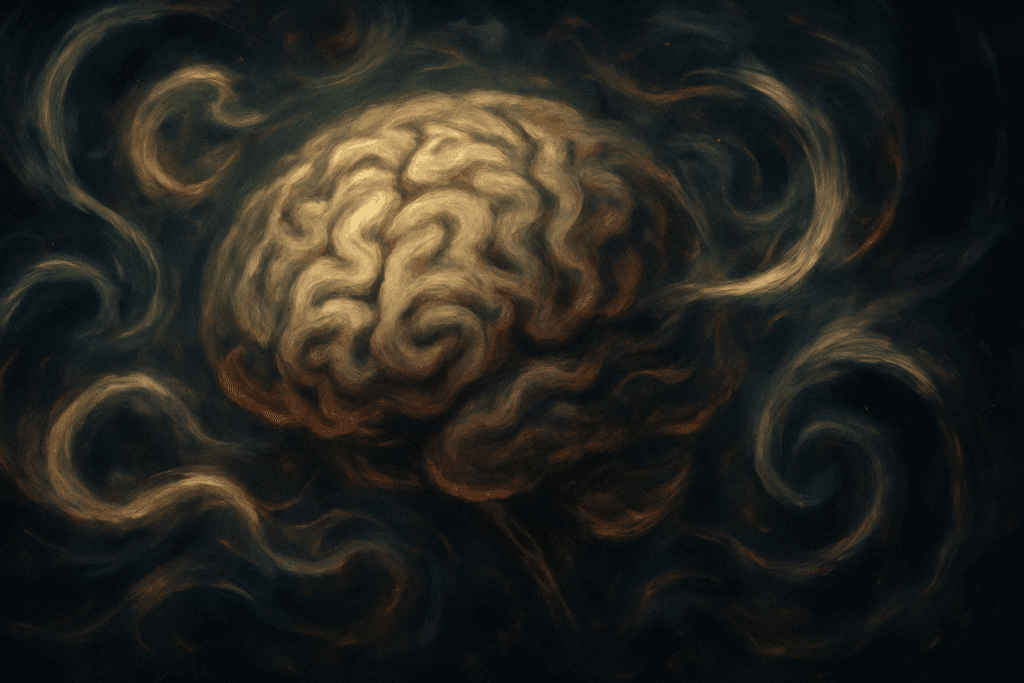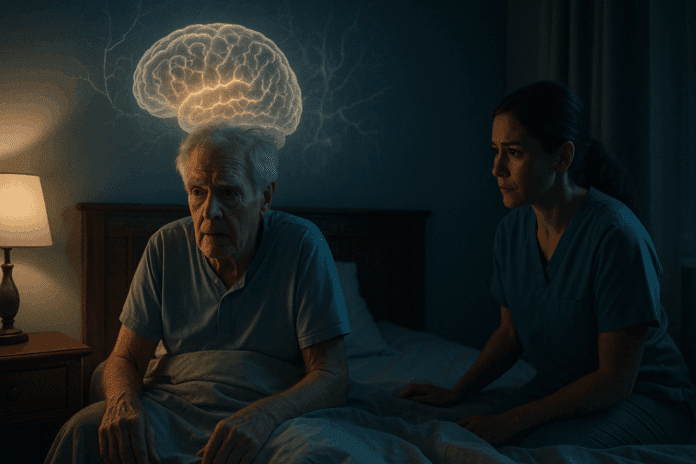In the realm of sleep aids and circadian rhythm regulation, melatonin has earned a reputation as a safe and effective supplement for many individuals struggling with insomnia or jet lag. However, its use becomes more controversial when considered for populations with cognitive impairments, particularly dementia. As dementia rates rise globally and caregivers seek non-pharmacologic methods to manage sleep disturbances, melatonin is frequently viewed as a seemingly benign option. Yet medical experts are increasingly questioning whether melatonin for dementia patients is truly safe or effective. The emerging consensus suggests that there may be significant cognitive risks and unintended consequences, prompting the critical question: why is melatonin not recommended for dementia patients?
You may also like: How to Prevent Dementia and Alzheimer’s Disease Naturally: Expert-Backed Strategies to Reduce Your Risk Through Lifestyle and Diet

Understanding Melatonin: Mechanisms, Benefits, and General Use
Melatonin is a naturally occurring hormone produced by the pineal gland in the brain. It plays a fundamental role in regulating the body’s sleep-wake cycle, also known as the circadian rhythm. Production of melatonin increases in the evening in response to darkness, signaling to the body that it is time to prepare for sleep. Conversely, levels fall in the morning with exposure to light. This endogenous hormone is not only vital for sleep initiation but also has anti-inflammatory and antioxidant properties that contribute to its widespread use as a supplement.
In healthy individuals, supplemental melatonin is often used to treat delayed sleep phase disorders, support sleep during travel across time zones, and improve sleep quality in shift workers. For many people, it offers a gentler alternative to prescription sleep medications, avoiding the sedative hangover or dependency issues associated with benzodiazepines and other hypnotics. However, the benefits of melatonin in cognitively impaired populations are far from clear-cut, and this uncertainty raises critical concerns about melatonin and dementia.

Sleep Disturbances in Dementia: A Widespread and Complex Challenge
Sleep disorders are common in individuals with dementia, especially those diagnosed with Alzheimer’s disease. These disturbances include insomnia, excessive daytime sleepiness, fragmented sleep, and sundowning syndrome—a phenomenon characterized by increased confusion and agitation in the late afternoon and evening. Such disruptions can severely affect quality of life for both patients and their caregivers, often contributing to increased institutionalization and caregiver burnout.
Given the severity of these symptoms, it is understandable that caregivers and clinicians look for non-pharmacologic interventions that seem low-risk. Melatonin for dementia patients appears, on the surface, to be an ideal solution. However, while sleep improvement may be the goal, the interaction between melatonin and the dementia-affected brain can have unintended and potentially harmful effects. This is one reason why is melatonin not recommended for dementia patients in many clinical contexts.

Conflicting Research: What the Science Says About Melatonin and Dementia
The evidence surrounding melatonin and dementia remains inconclusive and often contradictory. Some small-scale studies have suggested that melatonin supplementation may offer modest improvements in sleep quality and circadian rhythm regulation in individuals with dementia. A few trials have noted slight reductions in nocturnal awakenings or improved sleep efficiency, especially when melatonin is combined with light therapy. These findings initially offered hope to clinicians and families desperate for effective interventions.
However, more robust clinical trials and meta-analyses have failed to confirm these early results consistently. In several large studies, melatonin did not significantly outperform placebo in improving sleep outcomes among dementia patients. In some cases, melatonin use was associated with adverse neuropsychiatric effects, including increased confusion, agitation, and even delirium. These mixed outcomes have led many experts to caution against routine use of melatonin in this population.
Moreover, the variability in dosing, formulation, and study design complicates the interpretation of results. Melatonin is sold as a dietary supplement in many countries, meaning it is not regulated as strictly as pharmaceutical drugs. Differences in bioavailability, timing, and dosage can dramatically alter how the hormone affects the brain. This inconsistency further contributes to uncertainty around the best melatonin for dementia patients, if any, and adds weight to concerns about safety and efficacy.

Potential Risks: Why Melatonin May Worsen Cognitive or Behavioral Symptoms
Among the most pressing reasons why is melatonin not recommended for dementia patients is its potential to exacerbate cognitive and behavioral symptoms. While melatonin is often praised for its neuroprotective effects in laboratory studies, its real-world application in dementia has shown troubling results in certain cases.
One risk involves the hormone’s influence on neurotransmitter systems beyond melatonin receptors. For instance, melatonin can interact with GABAergic and serotonergic systems, potentially affecting mood, cognition, and alertness. In people with dementia, where these pathways are already dysregulated, melatonin supplementation may further destabilize neurological function.
Additionally, there is evidence that melatonin can increase the risk of daytime drowsiness, cognitive dulling, and confusion in older adults. These side effects can be particularly harmful in dementia patients, who may already struggle with memory, orientation, and executive function. An increase in these symptoms not only reduces quality of life but also raises the risk of falls, wandering, and acute delirium episodes.
Another concern is the timing and dosage of melatonin use. Unlike pharmaceuticals with tightly controlled dosing, melatonin supplements can vary widely in strength. If taken at the wrong time of day or in inappropriate doses, melatonin may inadvertently disrupt circadian rhythms further, rather than restore them. This paradoxical effect is a major contributor to the hesitation surrounding melatonin for dementia patients.

Drug Interactions and Comorbidities: A Hidden Layer of Complexity
Dementia patients often take multiple medications to manage a range of conditions, including cardiovascular disease, diabetes, depression, and anxiety. Introducing melatonin into this complex pharmacologic landscape can lead to unintended interactions. Although melatonin is generally considered safe when used alone, its interactions with other drugs metabolized by the liver’s cytochrome P450 enzymes can alter drug levels in unpredictable ways.
For instance, melatonin may interfere with anticoagulants, antidiabetic medications, and drugs affecting the central nervous system. These interactions can compromise the efficacy of essential treatments or increase the risk of side effects. Given that many older adults already face polypharmacy-related complications, the addition of melatonin should be approached with caution.
Moreover, dementia patients may have impaired hepatic or renal function, which affects drug metabolism and elimination. This increases the potential for accumulation and toxicity, even with seemingly benign agents like melatonin. These physiological vulnerabilities further reinforce expert hesitation around the use of melatonin in dementia patients.
Regulatory Gaps and Lack of Standardization in Melatonin Supplements
One often overlooked issue is the lack of regulatory oversight and product consistency in the melatonin supplement market. In many countries, melatonin is available over the counter and categorized as a dietary supplement, which means it is not subject to the same rigorous quality control standards as prescription medications. Independent analyses of melatonin supplements have found significant discrepancies between labeled and actual doses, sometimes varying by as much as 400%.
For dementia patients, who are particularly vulnerable to dosing errors and sensitivity to medication fluctuations, this inconsistency poses a serious risk. A supplement labeled as 1 mg may in fact contain significantly more or less, leading to unpredictable effects on sleep and cognition. The lack of regulation also makes it difficult to identify the best melatonin for dementia patients, as formulation quality varies widely across brands.
Clinical Guidelines and Professional Recommendations
Medical organizations and expert panels have begun to weigh in more definitively on the use of melatonin in dementia care. While some guidelines acknowledge that melatonin may have a role in specific cases—such as when used under close supervision alongside light therapy—the general consensus is that melatonin should not be considered a first-line treatment for sleep disturbances in dementia.
The American Academy of Sleep Medicine, for instance, does not recommend melatonin as a primary intervention for insomnia in individuals with cognitive decline. Instead, behavioral strategies, sleep hygiene practices, and environmental modifications are emphasized. These recommendations underscore why is melatonin not recommended for dementia patients, especially when alternative approaches may offer safer and more sustainable benefits.
Furthermore, many geriatricians advocate for a “start low, go slow” approach if melatonin is used at all. This method involves initiating treatment with the lowest possible dose, monitoring closely for adverse effects, and adjusting only under medical supervision. Even with this cautious strategy, the question of long-term safety remains unresolved, adding to the complexity of melatonin and dementia management.

Alternatives to Melatonin: Behavioral and Environmental Interventions
Given the concerns surrounding melatonin for dementia patients, clinicians and caregivers often seek alternative methods to address sleep disturbances. Fortunately, a range of non-pharmacological interventions has demonstrated efficacy and safety in this population.
Cognitive-behavioral therapy for insomnia (CBT-I), adapted for older adults and individuals with cognitive impairment, offers structured techniques to improve sleep patterns. This therapy focuses on modifying behaviors and thought patterns that interfere with sleep, such as irregular sleep schedules, excessive daytime napping, and nighttime rumination.
Environmental modifications are also essential. Exposure to bright light in the morning, maintaining consistent sleep-wake times, reducing nighttime noise and light exposure, and creating calming pre-bedtime routines can help regulate circadian rhythms naturally. These interventions often require time and commitment but provide lasting benefits without the risks associated with pharmacologic treatments.
Caregivers also play a crucial role. Educating caregivers on how to manage nighttime agitation, respond to sundowning behaviors, and establish structured routines can significantly improve outcomes. By focusing on holistic approaches that support the individual’s physical, emotional, and cognitive well-being, it is often possible to reduce reliance on supplements and medications altogether.
Revisiting the Search for the Best Melatonin for Dementia Patients
Despite the concerns, some caregivers and healthcare providers continue to explore the possibility of identifying the best melatonin for dementia patients. If melatonin is to be used, it must be under the guidance of a qualified clinician who can assess the appropriateness of the supplement for that individual’s unique health profile.
Extended-release formulations may be more appropriate in certain cases, as they mimic the body’s natural melatonin secretion and may reduce the risk of early morning awakenings. Low-dose preparations, ideally verified by third-party testing for accuracy and purity, are preferred. Still, even the best melatonin products cannot substitute for the comprehensive assessment and care planning required in managing dementia-related sleep issues.
Ultimately, the desire to find the best melatonin for dementia patients often stems from the understandable urge to do something—to offer comfort, relief, and rest. Yet experts caution that without a full understanding of the potential consequences, even well-intentioned interventions can lead to harm. In dementia care, where nuance and vigilance are paramount, every intervention must be chosen with care.
Frequently Asked Questions: Melatonin and Dementia
1. Can melatonin affect brain function differently in dementia patients compared to healthy older adults?
Yes, research increasingly suggests that melatonin may interact with the dementia-affected brain in ways that differ significantly from its effects in cognitively healthy older adults. In patients with neurodegenerative diseases like Alzheimer’s, neurotransmitter systems are already compromised. Introducing melatonin into this altered neurochemical landscape can sometimes lead to paradoxical effects such as increased disorientation or restlessness. This is one of the reasons why is melatonin not recommended for dementia patients, as their brains may respond unpredictably to even low doses. The contrast in neurobiological function between healthy and impaired aging brains demands careful consideration when introducing sleep aids.
2. Are there any dementia subtypes that may respond better to melatonin than others?
Emerging evidence indicates that certain dementia subtypes, such as Lewy body dementia or frontotemporal dementia, may respond more poorly to melatonin than Alzheimer’s disease. For example, people with Lewy body dementia often have heightened sensitivity to sedatives and may experience worsened hallucinations or increased confusion. Therefore, the blanket use of melatonin for dementia patients across all subtypes is problematic. Even if mild benefits are seen in one subtype, they may be harmful in another, reinforcing the importance of subtype-specific clinical evaluation. This further highlights why melatonin and dementia must be approached with individualized caution.
3. What role does circadian rhythm disruption play in the controversy over melatonin use in dementia care?
Circadian rhythm dysfunction is a hallmark of many dementia syndromes, with patients often experiencing disturbed sleep-wake cycles. While melatonin is known to influence circadian rhythms, dementia-related neural degeneration in the suprachiasmatic nucleus (the brain’s circadian pacemaker) may blunt melatonin’s effectiveness. Some experts suggest that this neurodegeneration may explain why melatonin fails to produce consistent results in dementia patients. When considering melatonin for dementia patients, it’s essential to understand that the physiological pathways necessary for melatonin to function may be damaged. This further supports concerns about whether supplementing melatonin truly addresses the root problem.
4. Are there any promising clinical trials evaluating safe melatonin use in dementia patients?
Several clinical trials are currently exploring how to safely incorporate melatonin into dementia care, often in combination with light therapy or structured behavioral interventions. These trials are assessing not just whether melatonin works, but how it should be dosed and timed for maximal benefit. The ultimate goal is to identify the best melatonin for dementia patients that minimizes risks while improving sleep. Researchers are particularly interested in extended-release formulations that more closely mimic the body’s natural secretion pattern. Until such data becomes widely available, clinical caution remains warranted.
5. How do caregiver reports align with scientific findings about melatonin and dementia?
Interestingly, caregiver observations sometimes contradict clinical data, with anecdotal reports suggesting mild improvements in sleep with melatonin use. However, many caregivers also report increases in confusion, agitation, or early morning wakefulness after administration. These real-world accounts help underscore why is melatonin not recommended for dementia patients in a blanket fashion. Caregivers may also unintentionally administer melatonin at suboptimal times, undermining its effectiveness. Their feedback, while valuable, highlights the complexities of unsupervised use in cognitively vulnerable individuals.
6. What are some lesser-known risks of melatonin in the context of dementia beyond sleep disturbances?
Beyond sleep-related issues, melatonin can interact with the endocrine system and immune responses in ways that may be poorly tolerated by individuals with dementia. Some research suggests it may suppress cortisol rhythms, which are crucial for maintaining daily physiological balance. Additionally, chronic melatonin use may alter appetite, temperature regulation, and even emotional processing. These side effects are rarely discussed in the context of melatonin and dementia but may contribute to the broader cognitive and behavioral instability observed in some patients. Therefore, clinicians must think beyond sleep when considering melatonin for dementia patients.
7. Could personalized genomics play a future role in guiding melatonin use in dementia care?
Personalized medicine, including genomic profiling, holds potential for determining who might benefit from melatonin without adverse effects. Variations in genes that influence melatonin receptors or metabolizing enzymes (like CYP1A2) could predict individual responses. In the future, testing for these polymorphisms might help identify the best melatonin for dementia patients based on their unique biological profiles. Such targeted approaches could reduce the trial-and-error currently associated with sleep treatment in dementia. While still in its early stages, this represents a promising direction in addressing the nuanced relationship between melatonin and dementia.
8. What guidelines exist internationally regarding melatonin use in cognitively impaired populations?
International guidelines vary considerably, but a growing number of countries recommend against routine melatonin use in older adults with dementia unless under specialist supervision. In the UK, melatonin is a prescription-only medication and is typically reserved for controlled clinical settings. In Canada and the U.S., over-the-counter access has led to widespread unsupervised use, despite growing expert concerns. This variation in regulatory stance underscores why is melatonin not recommended for dementia patients in many evidence-based healthcare systems. Coordinated global efforts are needed to standardize guidance for vulnerable populations.
9. Are there specific formulations of melatonin considered safer for dementia patients?
If melatonin is to be used, extended-release or low-dose formulations are generally regarded as safer options. These versions aim to mimic the body’s natural melatonin rhythm more closely and reduce the risk of rebound insomnia or early awakening. However, even the best melatonin for dementia patients must be selected with care, ideally verified by third-party lab testing to ensure dose accuracy. Fast-release melatonin, in contrast, may cause abrupt shifts in sleep timing and is more likely to contribute to morning confusion. As always, any supplementation should be supervised by a medical professional familiar with the patient’s broader health status.
10. What steps can families take before considering melatonin for dementia-related sleep issues?
Families should first explore behavioral and environmental strategies, such as light therapy, consistent sleep routines, and caregiver coaching. Consulting with a geriatrician or neurologist can provide a nuanced perspective that addresses both sleep and cognitive health. Asking a professional why is melatonin not recommended for dementia patients often reveals concerns not immediately obvious from internet searches or supplement labels. If melatonin is still under consideration, selecting products with third-party quality certifications and beginning with micro-dosing is advisable. Most importantly, monitoring for adverse behavioral changes in the first few days is essential to determine tolerance and safety.
Final Reflections: Balancing Hope and Caution in the Use of Melatonin for Dementia Patients
As the prevalence of dementia continues to grow, so too does the urgency to find effective, safe, and compassionate ways to address the sleep disturbances that so often accompany this condition. Melatonin, with its reputation as a gentle sleep aid, may seem like a natural choice. Yet the question remains complex: why is melatonin not recommended for dementia patients?
Through a careful examination of the evidence, we find that melatonin and dementia intersect in ways that can be unpredictable and, at times, problematic. While some studies have hinted at modest benefits, the risks—including cognitive worsening, behavioral agitation, and potential drug interactions—cannot be ignored. The variability in supplement quality, the lack of consistent dosing guidelines, and the delicate neurochemical balance of the dementia-affected brain further complicate this picture.
Instead of defaulting to melatonin for dementia patients, many experts now advocate for a more individualized, holistic approach. Behavioral strategies, caregiver education, and environmental changes often provide more stable and lasting improvements without the accompanying risks. When melatonin is considered, it should be with full awareness of its limitations and under professional supervision.
The journey to improving sleep in dementia is not without its challenges, but it is one that can be navigated thoughtfully and safely. Understanding the potential consequences of melatonin use, exploring safer alternatives, and maintaining a patient-centered approach all contribute to better outcomes for both patients and caregivers. In doing so, we honor the complexity of the condition and the dignity of those who live with it.
Was this article helpful? Don’t let it stop with you. Share it right now with someone who needs to see it—whether it’s a friend, a colleague, or your whole network. And if staying ahead on this topic matters to you, subscribe to this publication for the most up-to-date information. You’ll get the latest insights delivered straight to you—no searching, no missing out.
Further Reading:
Can melatonin benefit people with dementia?
Can Melatonin Treat or Prevent Alzheimer’s Disease?
Disclaimer
The information contained in this article is provided for general informational purposes only and is not intended to serve as medical, legal, or professional advice. While Health11News strives to present accurate, up-to-date, and reliable content, no warranty or guarantee, expressed or implied, is made regarding the completeness, accuracy, or adequacy of the information provided. Readers are strongly advised to seek the guidance of a qualified healthcare provider or other relevant professionals before acting on any information contained in this article. Health11News, its authors, editors, and contributors expressly disclaim any liability for any damages, losses, or consequences arising directly or indirectly from the use, interpretation, or reliance on any information presented herein. The views and opinions expressed in this article are those of the author(s) and do not necessarily reflect the official policies or positions of Health11News.


